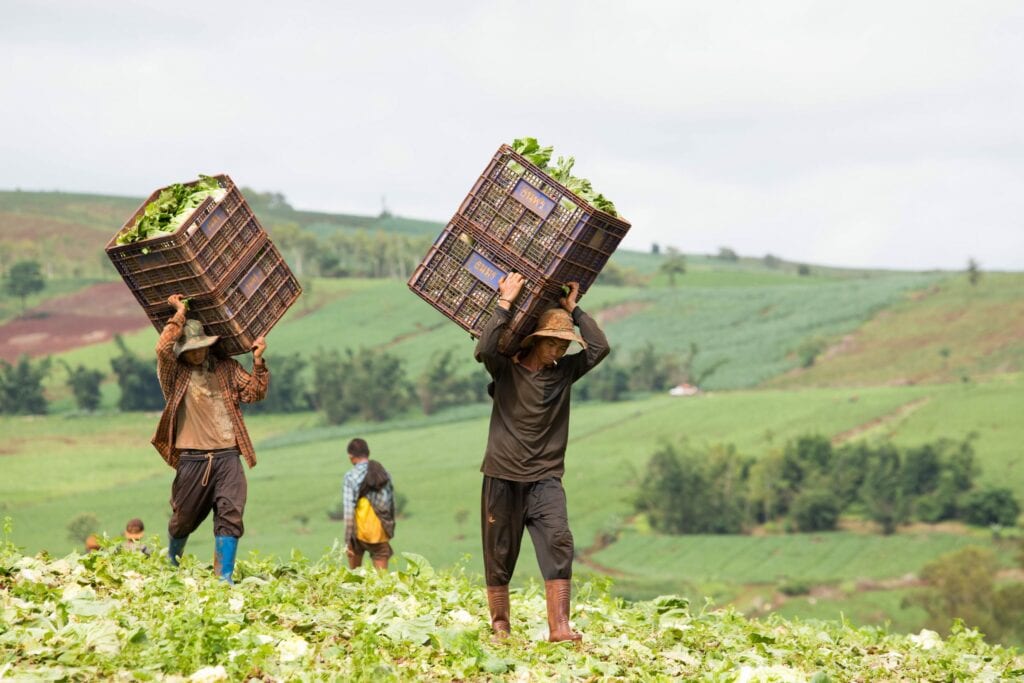5 min read
Cramped living conditions for migrant workers in corporate supply chains have contributed to an acceleration in COVID-19 infections in Singapore, leading to a temporary halt in construction projects. The living conditions of these workers and the unequal access to healthcare and welfare have caught the attention of the public as they now realise how the well-being of this otherwise isolated group is so intricately tied to their own well-being and their ability to recover from the pandemic as a nation. There are now questions around the responsibilities of private sector players and public-listed companies further down the supply chain- ranging from property developers to major companies in marine and manufacturing in ensuring better equity in treatment.
Addressing the human capital in supply chain risks
In the past, companies could get away with a surface-level understanding of where supply chains are located and its associated risks because business continuity was rarely a concern. After all, there would always be a steady supply of labour willing to fill the labour gap. Pressure from human rights group would ensnare the occasional companies to provide compensation for the migrant workers (Cal-Comp Electronics, Fox Conn) but it was not enough to initiate industry-wide reforms. According to the International Labour Organization estimates, some 24.9 million people are still trapped in forced labour, out of which, six in 10 are in the domestic work, construction or agriculture industry.
In a post-COVID world, it is still too early to tell if companies will pay more attention to human capital considerations in the supply chain. However, trends seem to be pointing to a shifting landscape. In The Economist’s brief sensing of the situation, it highlighted deglobalisation as companies look to manage their supply chains better by moving them closer to home.
Better supply chain management however requires more than just closer physical proximity. As the following corporate social investor models show, an ecosystem-building approach is necessary for management to be sustainable.
Social Businesses
Social businesses are enterprises that pursue both the social and financial bottom lines. More than just carrying out corporate social responsibility programmes, social businesses have a higher commitment to integrate socially responsible practices into their supply chains.
Take Unilever and Kellogg, two of the world’s biggest corporate giants in food and beverage. In a benchmark exercise of 38 biggest publicly listed companies, these two companies occupied the top two spots in their efforts to manage the risks of migrant worker exploitations, which is especially prevalent in the agricultural sector. Kellogg provides training to its suppliers on ethical recruitment and migrant workers’ rights along with audit checks on indirect suppliers and recruitment agencies. Meanwhile, Unilever works with suppliers in Malaysia to ensure passports were returned to migrant workers and carried out initiatives in the Indian tea supply chains so that workers understand their rights and ways of raising their grievances.
Beyond mere practices of risk mitigation, these two companies are also known for their inclusive business initiatives. Kellogg has trained some 500,000 farmers in climate-smart agriculture practices that ensure sustainable livelihoods while Unilever has enabled around 790,000 smallholder farmers to access initiatives that aim to improve their agricultural practices.
Corporate Foundations
Corporate foundations are legally independent entities set up by companies to channel their philanthropic funding and/or execute socially responsible programmes. This vehicle gives companies the flexibility to pursue philanthropic initiatives that are distinct from the company’s business but increasingly, it has become a strategic business tool with hands-on approach by the sponsoring company.
For 180-year old global clothes retailer C&A, it has chosen to set up a corporate foundation in 2014 to manage supply chains using an ecosystems approach. The C&A Foundation (now known as Laudes Foundation) became a vehicle for C&A to source better cotton, but in a way that does not limit it from forming “alliances with other brands and retailers in pre-competitive spaces and with actors from across the supply chain to co-create solutions to the industry’s biggest challenges.”
Through a series of innovative corporate set-ups and structuring, C&A’s involvement in this space saw it co-starting an independent social enterprise CottonConnect together with Shell Foundation and Textile Exchange. Through grant and equity support, the C&A Foundation played a pivotal role in launching CottonConnect’s Organic Cotton Farmer Training Programme that explores innovative models for farmers to connect with each other and to the market. This includes reducing the number of middle men in the supply chain for farmers to get a better price on the cotton.
Through these interventions, farmers in India enhanced their income by 29% and increased participation of Indian women farmers by 94% while global retail brands such as C&A, Ikea and Marks & Spencer benefitted from a higher supply of better cotton and better transparency in the cotton supply chains.
Corporate Impact Funds
Corporations can also leverage combined capital and network of industry partners to achieve sustainability goals. The Livelihood Fund co-launched by Danone is an example. The Fund currently operates two investment funds in which 12 major companies have invested or committed 220 million euros since 2011: Danone, Schneider Electric, Crédit Agricole S.A., Michelin, Hermès, SAP, Groupe Caisse des Dépôts, La Poste, Firmenich, Voyageurs du Monde, Mars Inc. and Veolia.
Through these funds, and assisted by Livelihood Ventures, a social business that advises the funds, investors share knowledge and risks to implement impactful solutions for rural communities while making their activities more sustainable. Some of the projects managed under their portfolio include transforming agricultural supply chains with smallholder farmers.
Take a project in the Philippines where coconut farmers are mostly aged and amongst the poorest in the community and where yields are two to three times lower than in Brazil. The Livelihood Funds views this investment on a 10-year horizon, mobilizing stakeholders of the coconut value chain in Mindanao comprising 5000 willing smallholder farmers, the Integrated Rural Development Foundation (IRDF), an established local NGO, Franklin Baker (leading manufacturer and exporter of coconut products) and Mars Inc. one of the investors. IDRF trains the farmers to generate higher yield farms and introduce better inter-cropping techniques, which in turn leads to higher yields. Franklin Baker is a ready buyer of these coconuts and in turn supplies them to Mars. This way, a transparent price mechanism is visible to both the farmers and the buyers, leading to a more sustainable supply chain.
Rather than mere risk mitigation steps, there are various other ways for businesses to have a better handle on their supply chains. The model of ecosystem building through these three models have worked well thus far. In a post-COVID world, it would be all the more relevant for corporations to build on this momentum. To learn how other businesses are supporting COVID-19 response, AVPN has launched a platform to highlight best practices and collaborative opportunities. Find out more.


















